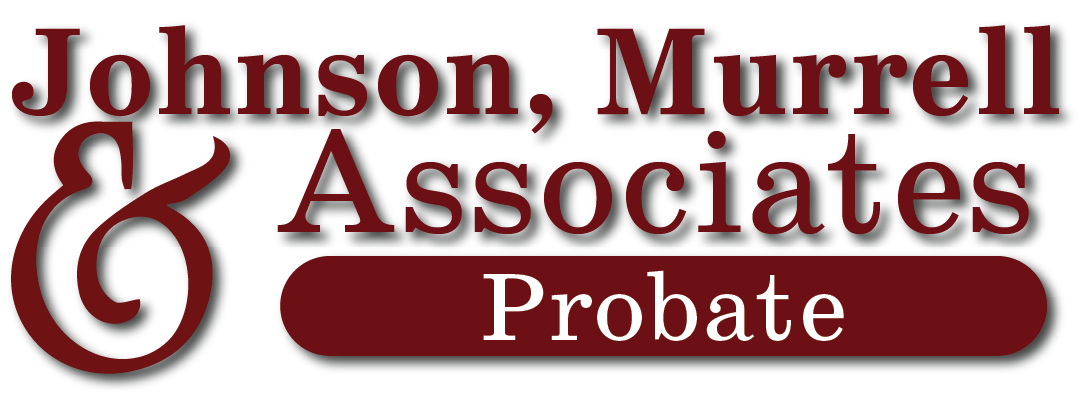Losing a loved one is one of the hardest experiences in a person’s life. The executor of the estate faces the additional stress of finalizing their loved one’s wishes once they have passed. Considering the added emotional toll, many people ask when—or if—the probate process is actually necessary. Here’s what you should know.
When Is Probate Required?
Probate can be required in a number of situations. These can include:
- When assets are owned solely in the deceased’s name
- When assets are owned as a tenant in common
- When there are predeceased beneficiaries or no designated beneficiaries
- When there is no valid last will and testament
- When a valid will requires the distribution of or retitling of assets

Assets Owned Solely in the Deceased’s Name
If a deceased person owned property in their name only, it means there were no joint owners or a payable-on-death designation. In situations like these, probate is required to remove the deceased’s name from the property and replace it with the beneficiary’s or heir’s name.
An exception to this rule is motor vehicles. In Tennessee, the vehicle can be transferred to the heir of the deceased without having to open a formal probate estate.
Assets Owned as a Tenancy in Common
Tenancy in common (TIC) refers to estate assets with shared ownership where each person owns a share of the property. Beneficiaries will need to file in probate court to transfer the asset out of the deceased’s name and into their own. In these situations, probate can only be avoided if the asset was retitled in the name of the deceased’s Revocable Living Trust before they passed.
Predeceased Beneficiaries or No Designated Beneficiaries

Predeceased beneficiaries are beneficiaries who passed away before the deceased did. In these situations, accounts or policies belonging to the deceased will need to be probated.
This includes payable-on-death accounts. For example, if John Doe has a bank account with Jane Doe designated as the payable-on-death beneficiary, but Jane Doe passes away before John and John never removes her name as the account beneficiary, the asset will require probate when John dies.
No Valid Last Will and Testament
The lack of a last will and testament combined with one or more of the above cases will likely require probate law. The keyword is valid. It’s important to avoid common mistakes when writing a will that complicates the probate process.
The Deceased Had a Valid Last Will and Testament
Sometimes, even a valid last will and testament isn’t enough to avoid probate. Especially in cases where the deceased owned real estate or financial assets without a named beneficiary, the probate process is necessary to officially transfer ownership to the heir.
Learn more about when probate is required.
What Are the Stages of Probate in Tennessee?
The stages of probate in Tennessee are fairly straightforward. They include:
- The executor deposits the signed, original will and the death certificate, then files a petition at the probate clerk’s office in the county where the decedent lived.
- They are issued letters testamentary that allow them to take charge of the estate assets.
- In cases where there is no will, a family member will request to be appointed administrator and issued letters of administration.
- The representative (executor or administrator) obtains a taxpayer ID number from the IRS and opens a checking account for the estate.
- Money from the decedent’s accounts is deposited for estate expenses.
- The will’s validity is affirmed in court.
- Creditors are notified by the representative and a notice of death is published in the local paper by the probate clerk.
- The representative pays off any outstanding debts using funds from the estate.
- The representative distributes what’s left of the estate to the beneficiaries.
Along with this, the representative should:
- Provide an inventory of the decedent’s assets that must go through probate.
- This isn’t required if the will states otherwise or all the beneficiaries agree that it’s not necessary.
- Notify all the parties who stand to benefit from the terms of the will or state law.
- File a Request for Release with TennCare to not pay reimbursements from the estate for the decedent’s nursing home or home care.
It may be necessary to file a probate case in another state in some cases (ancillary probate). This may happen when the decedent owned real estate in another state. Filing an ancillary probate will allow the representative to transfer the property from the decedent to the beneficiaries.
Learn more about the probate process.
How Much Does an Estate Have to Be Worth to Go to Probate?
The state of Tennessee does provide an alternative to the traditional probate process. Small estates valued at $50,000 and no real property require the representative to provide:
- An affidavit outlining the estate’s debts and assets
- Death certificate
- Contact information of the beneficiaries
Applying for a small estate has evolved due to the Tennessee Code § 30-4-101. The requirements for applying vary depending on which county the decedent lived in, so be sure to check the specific requirements for that county.
The court will decide if it will allow the simplified probate within days 45 once these documents have been submitted. Once approved, the assets can be directly transferred to the beneficiaries.
Do you need help with the probate process or creating an estate plan in East Tennessee? Contact us today to discuss your options!
Tennessee requires probate in a variety of cases. Common reasons for probate include assets owned by the deceased solely in their name and in cases of predeceased beneficiaries or no designated beneficiaries. Probate may also be required if there is no will and testament or, in some cases, even if a valid will and testament is provided.
At Johnson, Murrell, & Associates, we understand that handling a loved one’s estate and bills after their passing is an emotional, stressful experience. Our job is to make your life easier, which means guiding you through the process so you understand what’s to come. To schedule a consultation, call us at 865-453-1091 or schedule an appointment.



